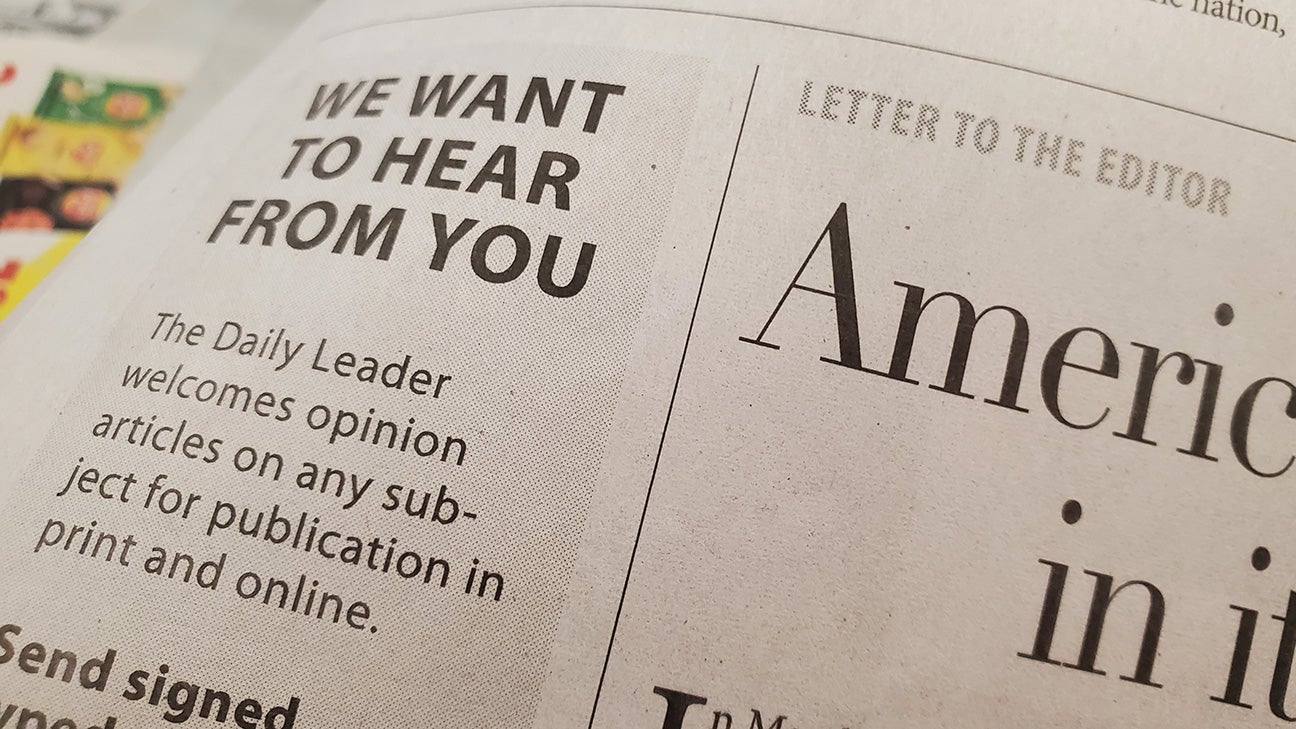Fighting for free speech in the Free State of Jones
Published 7:50 pm Monday, January 6, 2020
A former student at Jones County Junior College is suing the school for infringing on his free speech rights. And the U.S. Department of Justice is coming to his defense.
Michael Brown, who is now a student at the University of Southern Mississippi, was stopped twice by campus police for trying to inform students about the political club he was involved with, Young Americans for Liberty, without prior authorization from the school’s administration, according to the complaint filed by the Foundation for Individual Rights in Education.
Brown was stopped by campus officials early last year about an inflatable beach ball, known as a “free speech ball,” upon which students could write messages of their choice and again in the spring for polling students about marijuana legalization.
An administrator told YAL that they weren’t permitted on campus since they hadn’t sought permission from the college.
According to Brown, he and another student held up a sign polling students on marijuana. Campus police took him and another student to their office after telling a friend, who wasn’t a student, to leave. Campus officers later escorted the friend off campus.
The DOJ has now issued what is known as a statement of interest.
The DOJ statement compared the school’s regulations regarding public speech from their handbook to the tyrannical state of Oceania in George Orwell’s “1984.” The statement also says the college has an obligation to comply with the First Amendment.
The current regulations require at least three days’ notice to administrators before “gathering for any purpose.” The student handbook also puts even more restrictions on college-connected student organizations, which must schedule their events through the vice president of student affairs. The school administration also reserves the right, according to the handbook, to not schedule a speaker or an activity.
The statement says that these restrictions operate as a prior restraint on student speech and contain no exception for individuals or small groups, and grant school officials unbridled discretion to determine about what students may speak.
The DOJ urges JCJC to revisit and revise its speech policies. In May, FIRE wrote a letter to Jones Count Junior College President Jesse Smith offering to help the community college bring its policies into compliance with the First Amendment. The school didn’t respond to the letter.
This, however, is not the first – or even the most recent – instance of college campuses in Mississippi restricting free speech.
This fall, the Overby Center for Southern Journalism and Politics at Ole Miss rescinded an invitation of Elisha Krauss, a conservative commentator, days before she was scheduled to appear. The event was hosted by Young America’s Foundation. The Center is housed in the same building as the School of Journalism and New Media but is a separate organization.
The Overby Center claimed they do not allow ideological speakers, yet with a 2019 lineup that included a former Democratic candidate for the U.S. Senate and partisan journalists from the New York Times and Washington Post (among others), the definition of “ideological” seems to fluctuate based on how much you may agree with certain speech.
Krauss is certainly someone who has a conservative background, but also someone who has spent considerable time in the larger world of journalism. Someone who would have been a good balance to many of the other speakers allowed to convey their thoughts and ideas at the Overby Center.
Fortunately, the story in Oxford ended on a positive note. The administration invited Krauss back. And she gave a well-received speech, naturally, regarding free speech on college campuses.
But whether it’s a junior college or the oldest public university in the state, we shouldn’t be having these fights in Mississippi. Free speech should be welcomed and encouraged on every college campus in the state, regardless of whether you like the speech or not. And it shouldn’t take a lawsuit or an administrator overriding one or two decision makers.
To date, 14 states, including every state that borders Mississippi, have passed legislation to protect campus free speech and ensure different voices can be heard. The Magnolia State has the opportunity to join this growing trend in 2020.
Brett Kittredge is the Director of Marketing and Communications for Mississippi Center for Public Policy, the state’s non-partisan, free-market think tank.




